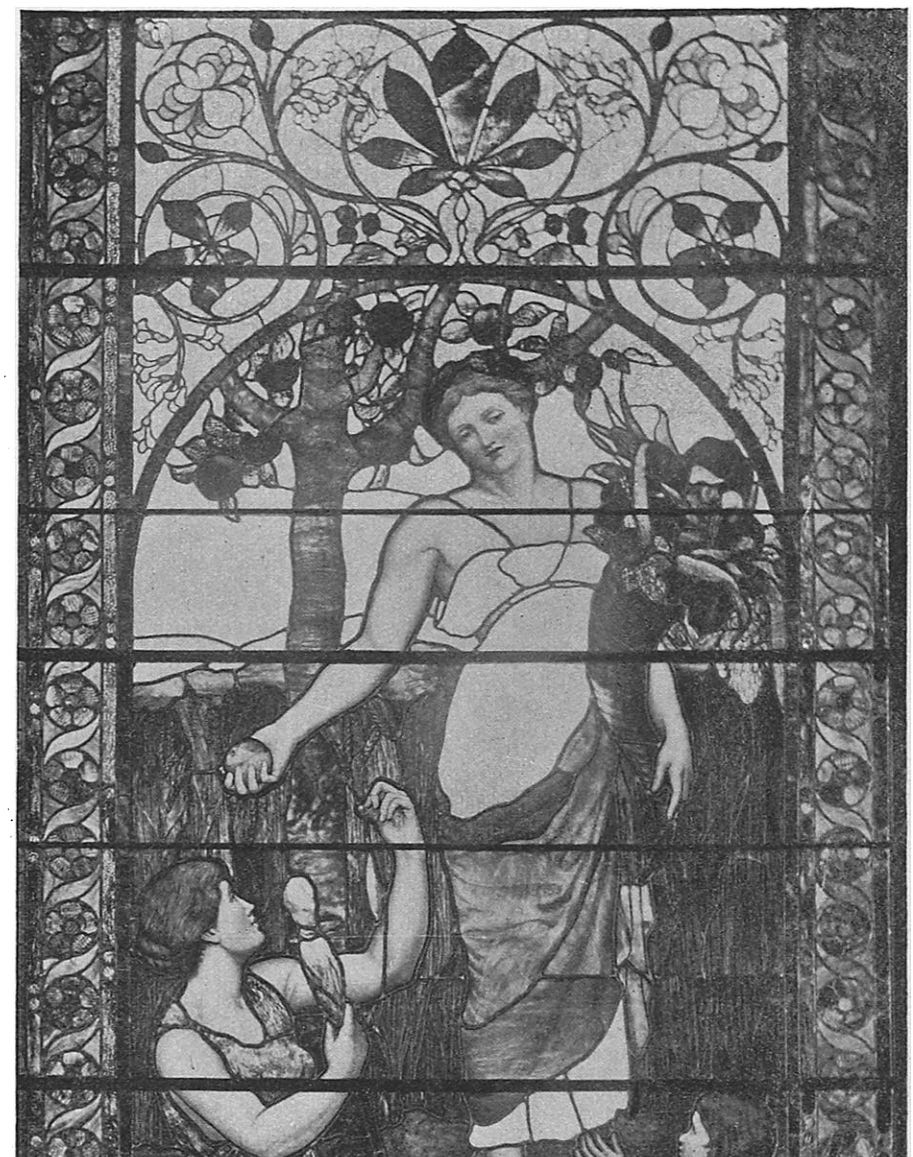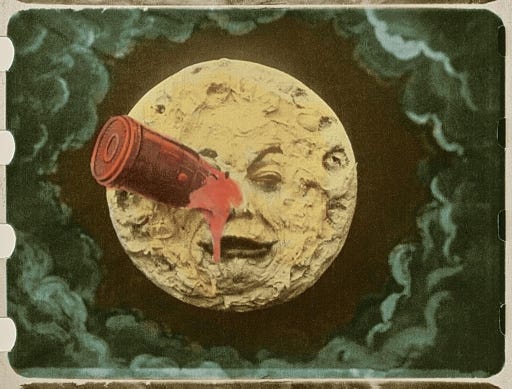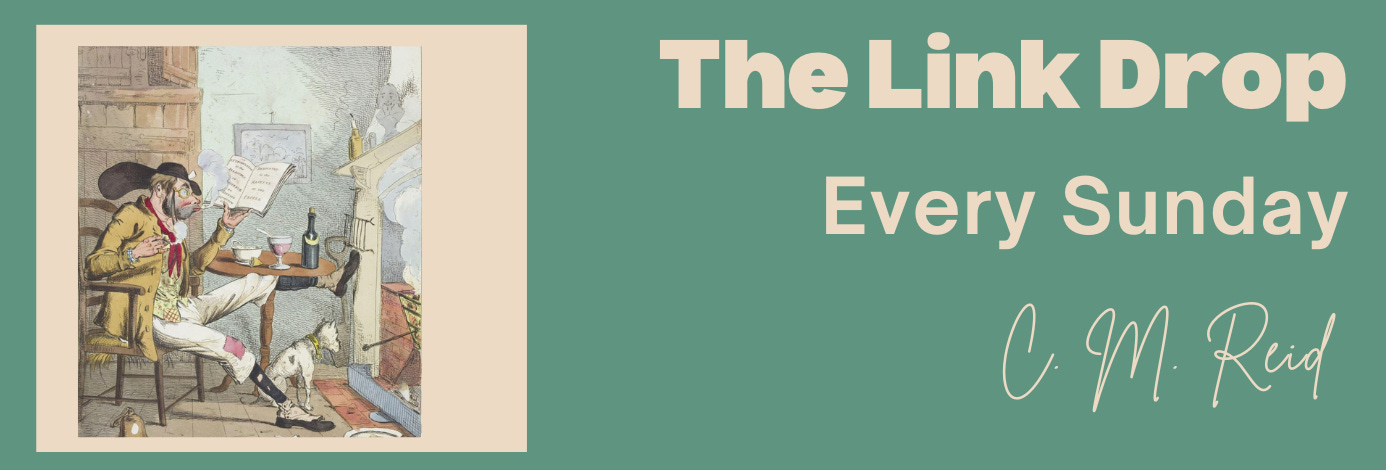The Link Week Drop, Week 30, 2025.
XVI: Your Alternative (intervention) to the Social Media Feed.
Thanks to everyone who has recently subscribed to The Link Drop. If you enjoy this free publication, consider supporting my work through the ‘Buy Me A Coffee’ button. A small amount goes a long way in supporting my writing.
I also publish SubStack’s The Ink-Stained Desk, a corner of the internet dedicated to all things reading, writing, and the transformative power of story. Regular features are Genre Genaology, Book Reviews, and Original Fiction. If this sounds like it might add value to your week, head over and take a look around.
This week on The Link Drop,
We consider the evolution of the book format, self learning practices and look at an article from 1894 about the decline of Venetian glassmaking (—look at that one if you only have time for one, it’s a gem!)
Hypergraphia: On Prolific Writers and the Persistent Need to Produce.
By Ed Simon.
The intense compulsion to write. This article challenges the negative perception of prolific writers, suggesting that the urge to produce is a profound and often inherent drive, not merely a commercial pursuit.
The Disastrous, Society-Shifting Divorce of William K. and Alva Vanderbilt.
By Elise Taylor.
Anyone else riding ‘The Guilded-Age’ train right now? I love watching shows that are based on historical facts. This article goes into the real divorce of the Vanderbilts and the effect it had on society.
Publishing without a spine: A new exhibition showcases “the power of print unbound”
By Ellis Tree.
No, I don’t live in London, but anyone who does, go visit this exhibition in person. For the rest of us, we will just have to be content with this article and the accompanying images. Here we look at the format of the book. Who knew it had been through such an evolution?

Alva Vanderbilt Belmont. circa 1875. Unknown artist. Source.
JSTOR Readings This Week
Get your free JSTOR accounts at the ready! (No, this is not sponsored. I’m just so grateful to be able to read 100 academic articles a month for free and want to shout it from the rooftops!)
“‘The King’s in His Castle … All’s Right with the World’: The Collapse of the Middle Ages.”
By Pelz, William A.
In A People’s History of Modern Europe, Pluto Press, 2016, pp. 1–17.
I’ve been on a history reading binge this week. I finally finished reading the first book in Zola’s Les Rougon-Macquart: The Natural and Social History of a Family under the Second Empire cycle. It has awakened something in my brain. This chapter goes into the decline of feudalism in Europe, highlighting the impact of major historical events like the Crusades, the Hundred Years' War, and the Black Death, showing how these events weakened the power of the feudal lords and the Church.
By Putnam, S. A. Brock.
In The Decorator and Furnisher, vol. 23, no. 5, 1894, pp. 170–72.
Yes, you read the date correctly. This was a treat to uncover. It traces the origins of Venetian glassmaking, its period of European monopoly and artistic excellence and its subsequent decline.

From ‘Venetian Art Glass.’ By Putnam, S. A. Brock. In The Decorator and Furnisher, vol. 23, no. 5, 1894, pp. 172. Source.
What I Enjoyed On Substack This Week.
How Surgery Lost its Culture of Learning.
By Shruti Koti, MD.
I finished reading a book this week that melded the history of medical learning in the 1800s with fiction. I loved the book and have been delving into medical history since. This article looks at how medicine has moved away from hands-on apprenticeship and Socratic methods towards more didactic, less engaging educational approaches. (—the book I finished is called The Resurrectionist, written by A. Rae Dunlap, easy five stars, I highly recommend it!)
How to Create Your Own University Course to Teach Yourself Almost Anything.
By Parker Settecase.
I recently discovered that Parker’s Ponderings is not only a YouTube channel but also a Substack newsletter. His most recent offering proposes a university-style approach to self-study, advocating for structured learning periods with defined topics, ‘credit hours’, and assignments, rather than relying solely on fluctuating motivation. It’s an interesting and motivating read. For someone unsure of whether they want to begin post-grad study (—that person would be me!) this might be something I do while I’m making up my mind.
Thanks so much for perusing The Link Drop this week,
See you next Sunday,
C M Reid at The Link Drop.





